The Songkran Festival is a national holiday in Thailand. It marks the beginning of the Thai New Year. It is a traditional Buddhist festival, and it is usually celebrated between 13 and 16 April unless the dates are modified by an official government announcement. In 2019, the holiday will be observed 12–16 April as 13 April falls on a Saturday.
On the first day they will dress up in new clothes and visit the local temple to make merit and then to their grandparents’ house in order to receive blessings. Afterwards, the youngsters will be out on the street taking part in the world’s biggest water fight.
The word “Songkran” comes from the Sanskrit word saṃkrānti, literally “astrological passage”, meaning transformation or change. The term was borrowed from Makar Sankranti, the name of a Hindu harvest festival celebrated in India in January to mark the arrival of spring. It coincides with the rising of Aries on the astrological chart and with the New Year of many calendars of South and Southeast Asia, in keeping with the Buddhist/Hindu solar calendar.
In Thailand, New Year is now officially celebrated on 1 January, Songkran was the official New Year until 1888, when it was switched to a fixed date of 1 April. Then in 1940, this date was shifted to 1 January. The traditional Thai New Year Songkran was transformed into a national holiday.
The Songkran Festival is also known as the water festival. It celebrates water as a ritual of washing away negativity from the year before. People celebrating Songkran take part in a traditional pouring of water that symbolizes washing away back luck and sins from a person’s life. Some people add herbs to the ritual water, as well.
As April is the hottest month of the year, the celebration of water is relevant on many levels of the festival. However, Songkran is not always celebrated in the same traditional manner. In big cities, the country takes to the streets. Cities like Bangkok see a host of street parties and water fights.
The most famous street party in Bangkok is called Silom. This party takes place all along a street that is over 4 kilometres in length. It is a huge party in which thousands of people have water fights with water guns, balloons and any other vessels they can get their hands on. The street is also crowded with vendors selling water guns, toys, food and drinks.
As a national holiday, offices and banks are closed during the three-day period. Many people take this as an opportunity to go visit their families. In addition to traditional water rituals and street parties, there are other key activities that the Thai people participate in during this week. Many will take this time to attend their temple. Some may also participate in an annual spring cleaning of their homes.
It’s Not Just A Giant Water Fight
The Songkran celebration is rich with symbolic traditions. Mornings begin with merit-making. Visiting local temples and offering food to the Buddhist monks is commonly practiced. On this specific occasion, performing water pouring on Buddha statues and the young and elderly is a traditional ritual on this holiday. It represents purification and the washing away of one’s sins and bad luck. As a festival of unity, people who have moved away usually return home to their loved ones and elders. Paying reverence to ancestors is an important part of Songkran tradition.
On the first day of the Songkran Festival, people will offer alms to monks. Thai people do this to make merit which is a good way to start the new year. Another way of making merit during the Songkran Festival is by releasing fish and birds back into the wild.
On the second day of Songkran, many families rise early and take part in traditional Buddhist rituals. They give alms to Buddhist monks. They also take part in a ritual that is known as ‘Bathing the Buddha image.’ During this ritual, devout followers will pour water over the statues of Buddha in their home and at their local temple.
Many cities around Thailand will have Songkran Parades to mark the start of the festival. During Songkran there are also beauty contests to find the most beautiful Thai woman and also the most handsome Thai man. The winners will take part in the parade.
During Songkran, it is traditional for Thai people to return to their ancestral homes and to pour water on the hands of their elders. They will also do this to anyone older than themselves that have been important in their lives like a teacher or other relative.
People also pour rose scented water on Buddha images as part of the ceremony. At the temples they organize ceremonies where you can go and pour rose scented water onto Buddha images and onto the hands of monks.
Another traditional activity for Songkran is making sand pagodas. This is a competition joined by local families to make the most beautiful pagoda made of sand. The original idea was for people to bring sand back to the temple which they may have inadvertently carried away on the sole of their shoes.
The Festivities Around Thailand:
- Central Region
People in this region clean their houses when Songkran approaches. All dress up in colorful clothing or Thai dress. After offering food to the monks, people will offer a requiem to their ancestors. People make merit offerings such as giving sand to the temple for construction or repair. Other forms of merit include releasing birds and fish. Nowadays, people also release other kinds of animals such as buffaloes and cows. Phra Pradaeng hosts traditional Mon ceremonies.
- Southern Region
Southerners have three Songkran rules: Work as little as possible and avoid spending money; do not hurt other persons or animals; do not tell lies.
- Northern Region
On April 7, Baan Had Siew in Si Satchanalai District hosts the’Elephant Procession Ordination’ event with a colorful parade where men dressed in the traditional clothes are taken to the temples on elephants. In northern Thailand April 13 is celebrated with gunfire or firecrackers to repel bad luck. On the next day, people prepare food and useful things to offer to the monks at the temple. People have to go to temple to make merit and bathe Buddha’s statue and after that they pour water on the hands of elders and ask for their blessings.
- Eastern Region
The eastern region has activities similar to the other part of Thailand, but people in the east always make merit at the temple throughout all the days of the Songkran Festival and create the sand pagoda. Some people, after making merit at the temple, prepare food to be given to the elderly members of their family.
- In Bangkok
In Bangkok, the capital city of Thailand, the Khao San Road and Silom Road are the hubs for modern celebration of Songkran. The roads are closed for traffic, and posts equipped with water guns and buckets full of water. The party runs day and night.
Some tips to make the most of the Songkran Festival:
Modern Songkran is renowned for the massive water-fights that take place on the streets of the cities and towns around the country, often continuing for three days or more. While the origins of the festival are far more sedate (more on that later), today Songkran is a pretty boisterous affair.
This is a great time to visit Thailand, but it definitely pays to be prepared if you haven’t experienced it before. Here are some tips to get you through:
- You Will Get Wet
If there is one thing we can say with certainty about Songkran, it’s that you are going to get wet. Very wet. That is, of course, unless you want to lock yourself in your home or hotel room for three or four days. Bringing a sense of fun to the occasion and accepting the fact that you’re going to get soaked many, many times over makes Songkran an infinitely more enjoyable experience. If it all gets too much, find a quiet place to chill out and dry off before returning to the fray.
- You Are Fair Game
If you go out during Songkran, then you are fair game. Don’t complain if you are squirted in the face with a water pistol or someone rubs white powder on your face. Although it might not seem like it, they are actually taking part in a centuries old tradition of paying respect to their elders. Let them do it and smile. Resistance is useless.
- Dress Appropriately
Don’t wear your best clothes. If you are a woman, try not to dress provocatively – particularly spaghetti strap tops or white t-shirts that become revealing when wet. Thai people are traditionally conservative, but some young men will take advantage of Songkran to grope you. Many of them have been partying all night and are drunk.
- Keep Your Cool
Keep your cool at all times. Everyone is just having fun. Be prepared for the buckets of water which have been pre-chilled with ice. Also beware that people might come up to you from behind to smear white powder on your face. If they are polite they will ask first. But, you won’t see that happen often. Try not to move too much when they are doing it as you might end up with the paste in your eyes. However, that is inevitable the longer you stay out.
- Protect Your Electronics
While Songkran is packed with excellent photo opportunities, it is advisable to leave high-end cameras and other expensive electronic equipment at home. Street vendors sell handy waterproof pouches that will effectively protect your smartphone and your cash.
If you take your camera then make sure you also have a plastic bag. Better still, buy a camera that is waterproof. Last year, many people ended up with soggy mobile phones that stopped working. The mobile phone vendors do good business during Songkran repairing them.
- Protect Your Papers
By law you have to carry your passport at all times. However, during Songkran you are running the risk of your important documents getting wet. Make photocopies of your passport to take out with you and leave all important documents in the hotel safe. It is advisable not to carry anything that can be damaged by water with you.
- Equip Yourself
Street vendors sell an impressive arsenal of water guns, buckets and anything else that can be used to soak passers by. Your weapon of choice is up to you. It’s best wear light, comfortable clothes that protect you from the sun. And if you really want to make like a local, be sure to invest in one of the very loud floral shirts you will see on sale everywhere.
- If You Opt Out
If you don’t want to take part in the water fights then you will need to stock up for at least 3-4 days. Some expats go out to buy enough DVD movies and food to last them the holidays. If you do venture out, the chances are high that you will get soaked.
The shopping malls and movie theatres are all open during Songkran. So, you can use these places as a safe haven. However, getting to them safely might be a problem. If you have to use public transport, make sure you use an air-conditioned bus or meter taxi. If you use a normal bus with the windows down or a tuk tuk then you will get soaked. Skytrain and subway are safe havens. Skywalks are reasonably safe.
- Travel Concerns
If you are going out in your car, try to stick to the main roads. There is no point in washing your car before or during Songkran. Wherever you go, your car will get plastered with white paste. Make sure that you have topped up your windscreen wipers with plenty of water. You will use them often. Whatever, you do, don’t forget to LOCK all car doors. If you stop at traffic lights or in a traffic jam, they will try to open your doors.
Lot’s of people drink day and night during Songkran and this new year period in Thailand sees the most horrific crashes on the roads. Most deaths occur on the side roads and in the evening. On the main roads most accidents are caused by drunk driving and speeding. If you are driving take extra care. There are a lot of drunk drivers out on the roads during Songkran. Personally, I don’t like to drive too far during this period and if I do, I stick to the roads that I know near my home.
- Plan Ahead
If you are planning to travel shortly before, after or during Songkran be sure to book ahead. Traditionally, this is a time when many Thais travel to their hometowns to visit family, so flights and even trains and buses can get booked up well in advance. Accommodation in certain areas, such as Chiang Mai, may also fill up quickly around Songkran.
Don’t make the mistake of thinking that the waterfights are only on 13-15 April. This year this is up against the weekend and so some kids might also play on Saturday. In addition, some areas of Thailand have their Songkran celebrations a week later. For example, Pattaya, Bangsaen and Koh Chang. The last of the waterfights will take place in Phra Pradaeng District of Samut Prakan on 24 April 2016.
- Visit a Temple
While Songkran today resembles a massive water-fight, it wasn’t always like that. The more traditional ritual of splashing fragrant water on Buddha statues and on the palms of elders is still common today as a symbol of cleansing. Acknowledging the true spirit of Songkran by visiting a temple is a great way to escape the madness. If you are in Bangkok, check out some of the temples in the Rattanokosin area.
Songkran is not just about water fights. Do make an effort to see the more traditional side. Early in the morning Thai people will be going to the temples to make merit. They will also bathe the monks and Buddha images with rose scented water. In the afternoon, they will build sand pagodas in the temple grounds.
- A Final Thought
If you are in Thailand, then I hope you go out and have some fun! The temperature is above 35 degrees Celsius and this is a good way to cool down. However, if you are not in Thailand, then try visiting your local Thai temple. Many of them will be holding Songkran activities.
The Story of Songkran
Like many celebrations and festivals in Thailand, Songkran has its origins deeply rooted in myth and legend. With Songkran, the myth revolves around Nang Songkran, or the Seven Ladies of Songkran.
In Thailand, the Hindu god Brahma, the creator and four-faced god, was also known as Kabila Phrom. He enjoyed betting and one day met a seven year old boy prince named, Thammabal Kumara who was prodigious in learning, being able to recite scriptures in public. The boy was also reputed to be able to understand the language of the birds.
Kabila Phrom wanted to test the child’s knowledge so he descended to earth and presented three riddles to the boy. Should Thammabal answer the 3 riddles correctly, Kabila Phrom would offer him his head to the boy. However, if the boy failed to come up with answers within seven days, he would lose his own head to Kabila Phrom. The three riddles were as follows:
- 1. Where did a person’s aura exist in the morning?
- 2. Where was a person’s aura at noon?
- 3. Where did it appear at night?
For six days the boy agonized over the answers to the riddles, yet could not come up with them. One the the seventh day, whilst lying under palm trees, he heard a male and female eagle joyfully talking about how they would soon be able to feast on a boy’s dead body. Not knowing the boy was was able to hear, the two eagles revealed the answers to the riddles. Thammabal immediately went to Kabila Phrom and recited the answers,
“In the morning, a person’s aura appeared on his face, so he washed it. At noon, it was at his chest; so, he wore perfume there. And at night, his aura moved to his feet; that was why he bathed them”.
Kabila Phrom had lost the bet and so had to cut off his own head. Kabila Phrom’s head, however, held special powers. It was extremely hot, so if it should touch the ground, the earth would be engulfed in a firestorm, destroying all life; if it should be left in the air, there would be no rain, bringing about vast drought and if it should be dropped into the sea, the sea would dry up.
In order to save the world from these possible disasters, the god’s seven daughters, the Nang Songkran, placed their father’s head on a phan (tray) and carried it in procession around Mount Meru before placing it in a cave on Mount Kailash with many offerings. Thus, at the beginning of each year, Kabila Phrom’s daughters would take turns to bring out the god’s head and carry it in procession around Mount Meru, this celebration is known as Songkran.
The seven daughters represent the seven days of the week and all have their particular names and vehicles that they ride on. The one who carries Kabila Phrom’s head on Songkran Day is called Nang Songkran, Miss Songkran. Thus, in some locations, “Miss Songkran” is crowned, where contestants are clothed in traditional Thai dress.
Sources:
Krazelna: Day of Hekate
Krazelna: Day of Hekate
Krazelna: Day of Hekate
Rachel V Perry: Emancipation Day
Rachel: The Nemesia
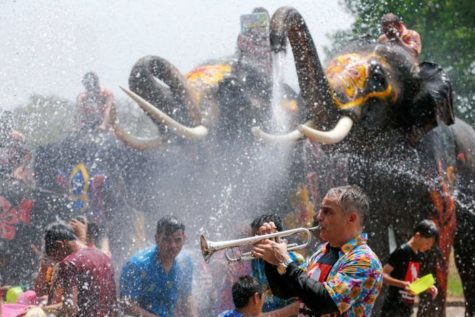
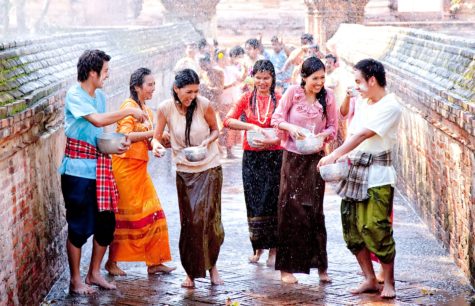
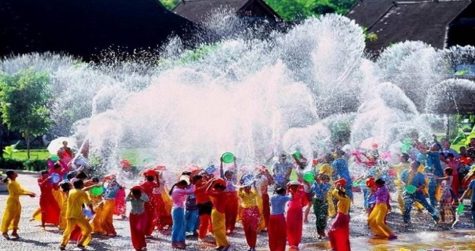
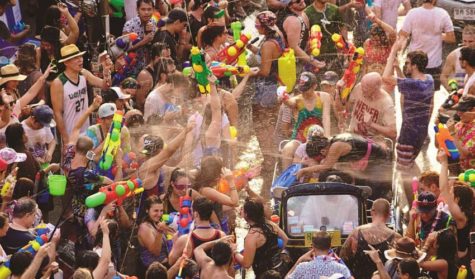
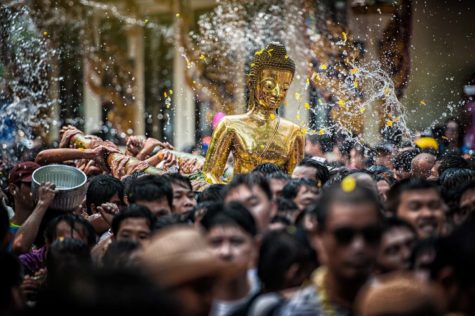
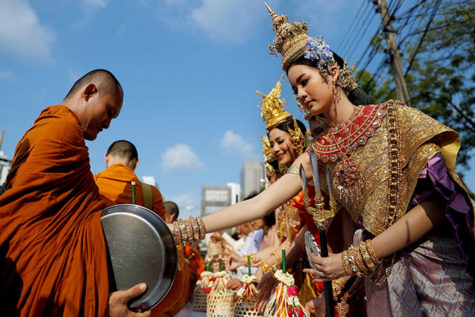
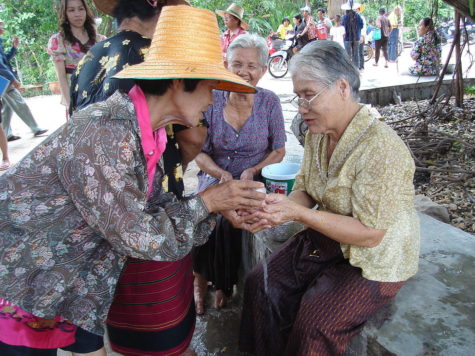

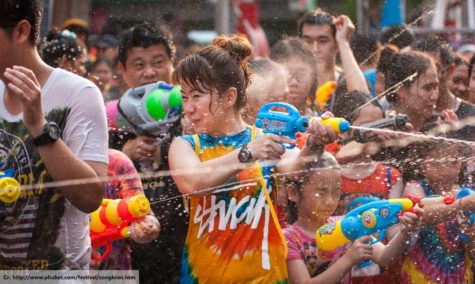
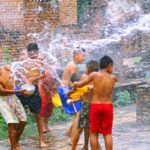
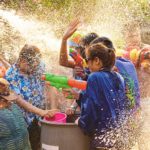
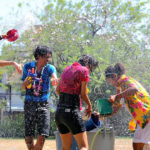

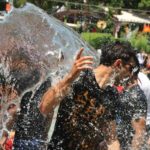
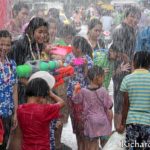

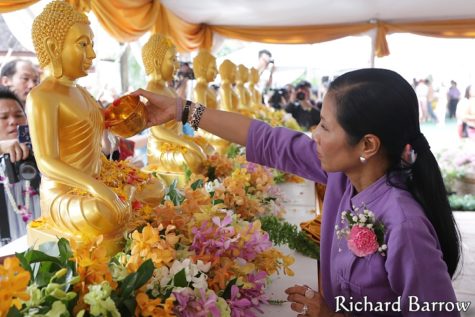


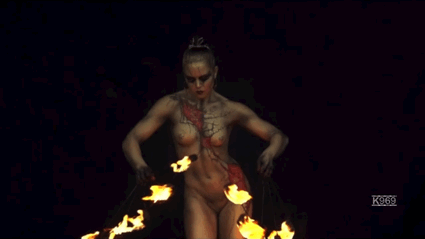
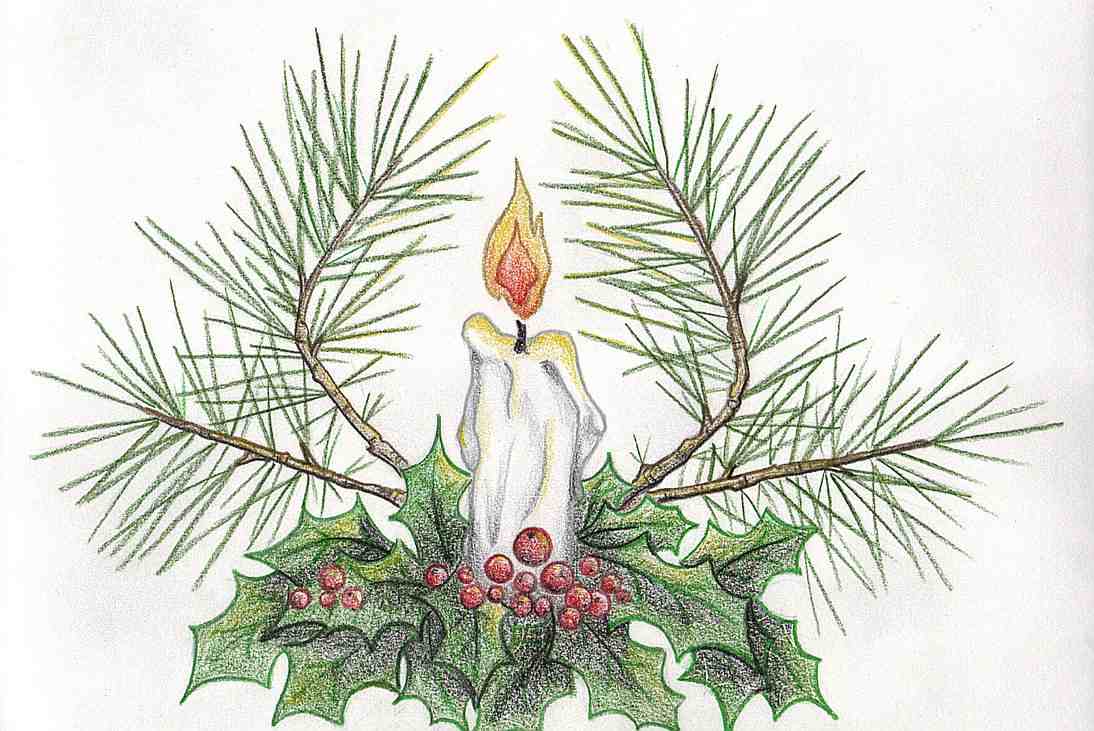
Leave a Reply